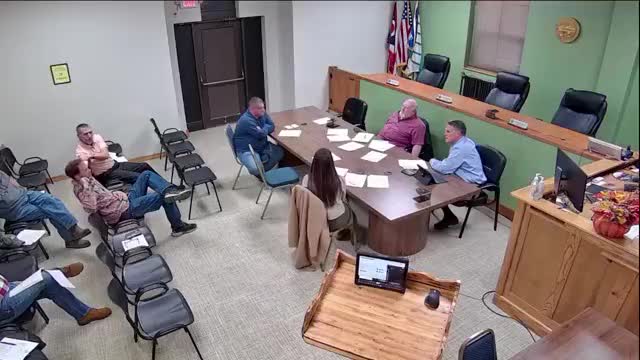Hocking County workshop focuses on safety, enforcement and clarifications in proposed short-term rental rules
Get AI-powered insights, summaries, and transcripts
Subscribe
Summary
Hocking County officials and stakeholders spent a workshop session debating proposed short-term rental regulations meant to address emergency-response and safety concerns, but they did not adopt any ordinance changes.
Hocking County officials and stakeholders spent a workshop session debating proposed short-term rental regulations meant to address emergency-response and safety concerns, but they did not adopt any ordinance changes.
Participants repeatedly returned to safety-related items: a required 24/7 local contact person, clear signage and addresses so first responders can find properties, standards for ingress and egress (including secondary exits for basements and lofts), and structural issues such as decks and sleeping-area measurements. County representatives said the draft will be clarified and redrafted by the consultant and staff; stakeholders were asked to submit a single consolidated list of specific suggested edits.
Why this matters: First responders described recent incidents in which crews had difficulty locating cabins, including a heart-attack fatality and a cabin fire that delayed response. Advocates for safety urged rules that ensure responders can reach guests quickly; owners and industry representatives warned about the cost, legal scope and unintended consequences of broad requirements.
Key provisions discussed included a provision modeled on a Realtors association template that would require a 24/7 local contact to "respond to complaints within 1 hour," a requirement the group distinguished from physically being present at the property. Stakeholders also debated whether the local contact is intended primarily for guests or for third parties such as emergency services; several speakers urged the draft explicitly state the purpose to reduce public confusion.
Enforcement and inspections were debated at length. County staff said the inspection costs would be borne by property owners and that a Marietta-based firm has expressed interest in performing code-enforcement inspections for small counties. The draft, as described at the meeting, proposes an initial inspection for compliance; staff said they were not proposing routine re-inspections at this time. Deck inspections would be required when a deck is greater than 5 feet above grade, and speakers cautioned structural engineers may refuse to certify some older or altered structures without substantial work.
The group discussed criminal-background screening language in the draft. The current draft requires an applicant to demonstrate they do not have certain convictions; participants raised the cost (noted in the meeting as $35 locally, $65 for out-of-state applicants at the sheriff's office) and asked for clearer definitions of which offenses would bar an application. Several attendees said the proposed restriction might prevent some people with distant convictions from obtaining permits, while others argued a public-safety threshold is appropriate.
Other topics included special-event permitting thresholds (one draft threshold of 100 people drew pushback as possibly too low), a proposed one-year variance window to allow owners time to correct deficiencies, and the decision to remove a square-footage requirement from the current draft. Stakeholders asked for clearer wording of technical items such as a measurement described in the draft as "30 inches between the side of the bed," which participants said must be specified more exactly.
Several property owners and industry representatives asked for stronger representation in the drafting process and for access to the underlying data used to justify the proposal. County staff and the consultant said they had held six countywide stakeholder meetings, numerous group sessions and would provide another redraft but did not set a timeline. The consultant who summarized stakeholder input was identified as American StructurePoint; staff said that firm had compiled meeting feedback and prepared the draft materials.
No ordinance vote occurred. The meeting ended with a motion to adjourn that was seconded. Staff said they will meet with stakeholders and return with a revised draft for additional review.
Sources: Statements recorded at the Hocking County short-term rental workshop, including first-responder examples and repeated stakeholder requests for clarified draft language and data transparency.
